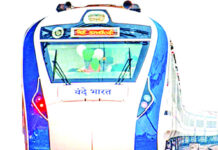Chennai has gone dry and its citizens are parched. Is this India’s dystopian future?
Chennai has suffered from a water shortage for several years. As floods in the southern metropolis showed, rampant development and landgrab by politically-connected developers have meant that hundreds of water bodies that recharged the city’s aquifers have been concretised. The little that are left are being over-exploited and vacuumised. However, the latest crisis being suffered in the city, where there is little water going to homes and citizens are rushing to book tankers from neighbouring districts, is far worse. More importantly, it’s a warning for more “zero days” and shines a light on the potential problem that several other Indian cities will face in the future.
Undoubtedly, there is rampant development of urban areas and India finds it difficult to strike a balance as people leave villages for cities and chase comforts of modern civilisation. The problem is not their aspiration but the unplanned and uneven development of urban areas where commercial, industrial and residential zones lie beside each other. Our urban planners have to spend more time in making sustainable layouts for cities and reimagine development dramatically to reduce water wastage, conserve water and recharge aquifers. Most major urban centres — Delhi, Mumbai, Bengaluru, Hyderabad, Pune and the list goes on and on —are water-stressed. Borewells are getting deeper and deeper and the water is running out. Besides sewage and water treatment plants are barely able to keep up with the demand. There is no provision for recycling water. Politicians have turned a blind eye to the water tanker mafia, who are unscrupulously draining aquifers everywhere they can find. At the same time, we are growing the wrong crops in the wrong parts of the country thanks to entrenched local politicians, like sugarcane in Latur and the Kaveri catchment area and water-intensive Basmati rice in the plains of Punjab and Haryana. Most of our farming practices are wasteful. So much more careful thought needs to be put into crop management and zoning farms according to the water map. At the same time, while we take so much technology from Israel in the fields of agriculture and water management, we stop short of applying it on a wide scale. There is an argument that the government should not penalise but incentivise but the acute crisis in Chennai is a dark portend of things to come in other cities. There should be penal action taken against those who waste water by using it inefficiently — in cities and in villages, in homes and in factories.





























